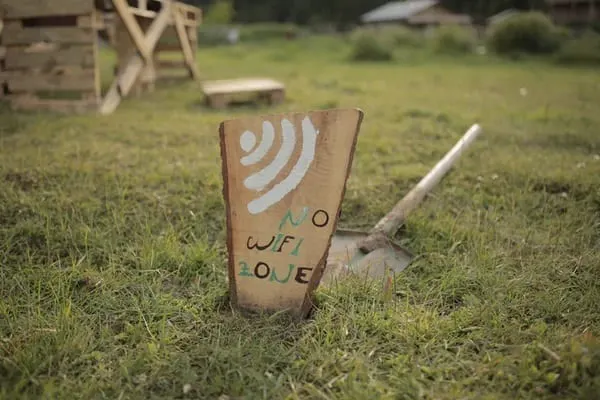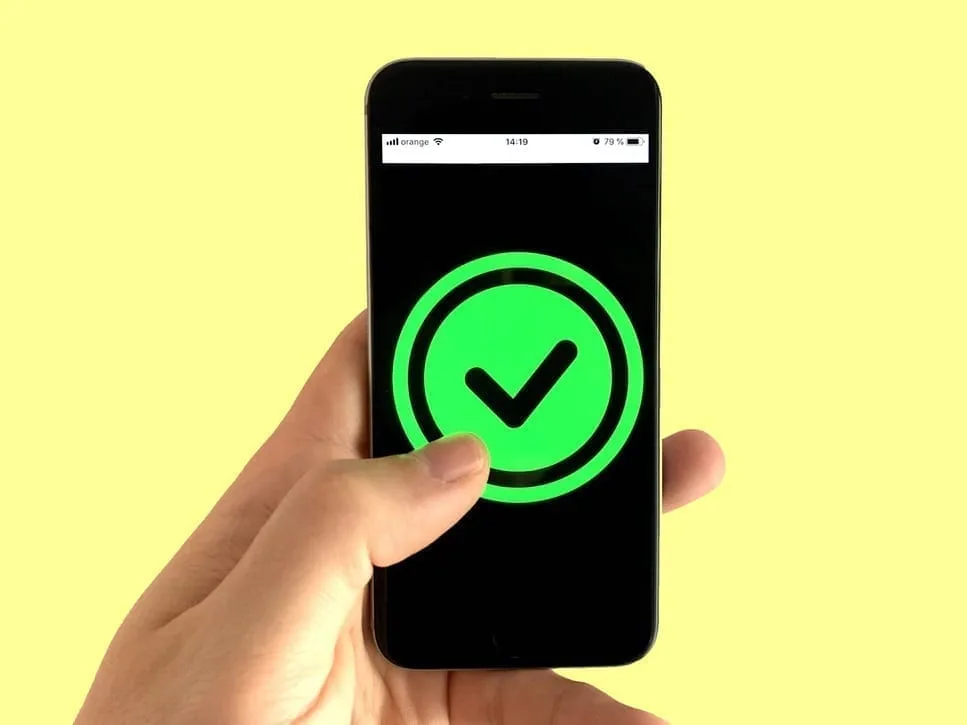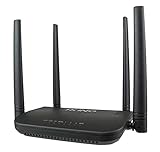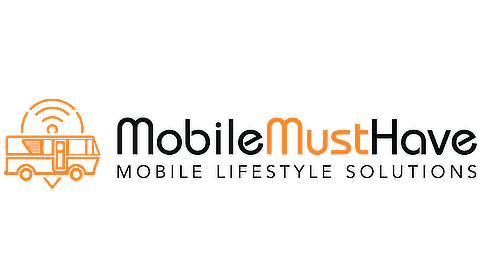Many RVers enjoy staying at campgrounds and RV parks during their travels. When making travel plans, they’ll check campground amenities, and when they see campground WiFi listed, they’re comforted to know they’ll be able to stay connected during their stay for work and recreational purposes. In fact, the availability of campground WiFi is among the most sought-after amenities for most campers.
We’ve all got cellular devices these days, so what’s the big deal? Well, there’s a significant difference between cellular and WiFi. Cellular devices such as tablets, smartphones, and portable WiFi hotspots require a data plan and local cell towers to access the internet. On the other hand, WiFi requires that we connect our wireless devices to a locally installed router for internet access.
So, if a campground has a router that makes WiFi available to campers, you’ll be able to access the internet wirelessly through the campground’s WiFi, sparing your coveted cellular data and saving it for the road, right? It’s great to know that when you arrive at your site, you’ll be able to complete some work, stream a movie (or the latest episode of The RVers!), and your kids will be able to play games on their devices. Everyone will be happy, right?
Well… not so fast!
Campground WiFi is not usually a solution for a campground full of WiFi-hungry campers for various reasons. That’s why in today’s post we’re tackling the question, “Is campground WiFi reliable?”
What Makes Campground WiFi So Bad?
In general, at most campgrounds and RV parks, there may be any number of obstacles between you and the campground’s WiFi router. These may include trees, other RVs, buildings, or simply the obstacle of distance itself.
In addition, campground WiFi typically has to support many users at any given time and is thus frequently overloaded, making it difficult to obtain clean access. For example, if 27 campers are trying to stream a movie or television show at 9 PM, along with 13 teenagers playing video games, 11 people using Spotify to stream music, and 12 people who are trying to get some work done online, that campground WiFi is OVERLOADED to the degree that we have to use all caps to describe the overload. You get the picture (and the picture is that annoying little buffering icon).
Let’s take a look at how campground WiFi works (or doesn’t).
How Does Campground WiFi Work?
A campground’s connection to the internet will typically be gained via DSL, cable, or satellite. They will then have wireless access points for broadcasting a signal.
Sometimes the only access point is located at one spot in the main building or the clubhouse. Other campgrounds will have multiple “towers” or access points scattered throughout the park.

At some campgrounds, you’ll only be able to connect to the WiFi at a designated place. So much for streaming The RVers from your cozy bed with coffee on a rainy Sunday morning.
How to Get WiFi at a Campground
For you to connect to a campground’s WiFi, you’ll need to gain access using whatever protocol the campground enforces. For example, some campgrounds offer free WiFi access, while others charge a fee. And some parks will offer limited free access (usually enough to check email) and then allow you to “upgrade” to a paid plan that provides a larger allotment/speed.
At some parks, you’ll be able to connect to WiFi right from your personal campsite, but in other locations, you’ll have to go to a central location (like the clubhouse, for example) to connect, and you’ll have to work, communicate, or enjoy your entertainment from that location.
If, instead of connecting to campground WiFi, you want to set up a hotspot in your RV, you can do that either by using your smartphone or a dedicated WiFi hotspot device that you’ve purchased with data. Just remember that you’ll be using up your own data when connecting via a hotspot, and you’ll need good, clear access to a cellular tower, whereas campground WiFi precludes the need for either of these.

You can connect to the internet using your smartphone’s hotspot or a dedicated hotspot, but you’ll need data and a good cellular connection wherever you’re camping.
There are ways to improve your campground WiFi connection and to prepare yourself to have internet access pretty much wherever you travel. Let’s take a look:
How to Improve Your Campground WiFi Connection
Products such as WiFi range extenders, boosters, and repeaters can extend your WiFi signal by up to about 2,500 feet. So if your normal WiFi signal is like a bubble of 150 feet or so around, above and below you, that signal can be improved by 10 to 20 times, depending on the extender, booster, or repeater you own.
Following are a few choices of products in different price ranges that can help to improve your campground WiFi connection:
- Home WiFi Range Extenders
The benefits of a product like these are that they’re cheap, small, and easily available at retail outlets everywhere. You can order one on Amazon or pick one up at the local Walmart or Staples.
- EXTENDED WIRELESS COVERAGE: Adds Wi-Fi range coverage up to 1000 sq ft, and connects up to 15 devices such as laptops, smartphones, speakers, IP...
- AC750 WI-FI SPEED: Provides up to 750Mbps performance using dual-band and patented FastLane(TM) technology.
- Dual Band WiFi Extender: Up to 44% more bandwidth than single band N300 WiFi extenders. Boost Internet WiFi coverage up to 1200 square feet and...
- Eliminate Wi-Fi Dead Zones - Enjoy Lag-Free Connection to any type of devices, including wired devices via Fast Ethernet port. System Requirements -...
The drawback of this type of extender is that it’s primarily designed for home use to extend the range of an existing single network (and typically one that’s in your control, like your own home network). This means that it may be cumbersome to manage to connect them at each campground you visit, so keep that in mind if you change locations frequently… this may become a bigger frustration for you.
Another issue with units like this is that they are merely re-broadcasting/strengthening the signal being provided by the campground WiFi equipment. That means you need to connect each of your devices to the campground WiFi network each time you arrive at a new campground. For only one or two devices, that’s fine. But if you have multiple phones, tablets, laptops, and/or other gear that needs to be connected, this can also become a royal pain in the neck.
These options are a good solution for basic needs for the infrequent traveler. For better performance for not a lot more money, however, consider going with a more dedicated unit like the King WiFiMax Router and Range Extender:
- Router and range extender. Powered by included 9v power supply, requiring 110V AC plug-in
- 2.4/5GHz dual-band Wi-Fi for fast speeds
This router is specifically designed for RV use and provides a fairly simple interface for managing which network you’re connected to. It has four stubby antennas that boost its range and improve connection strength and reliability using a technology called beamforming.
Unlike the Netgear unit above, the King WiFiMax Router creates its own dedicated network (with a password you set yourself). As a result, you connect all of your devices to the King Router’s WiFi network (once) and don’t need to change them at every new campground. Instead, you use a device you already have connected to the King Router’s WiFi to access its admin portal and select the campground WiFi network to connect to.
- Winegard ConnecT WiFi Extender / KING Falcon
If the units above aren’t enough for your needs, this next level up, both in terms of performance and price, will give you much more power and a greater range.
- Keep mobile devices, media players, and computers connected to WiFi with a reliable connection and expanded coverage
- Setup Requirements: Wireless 802. 11b/g/n 2. 4GHz network, computer, tablet, or smartphone with a web browser
- fully automatic, directional wi-fi antenna with extender
- provides fast, reliable, and secure long-range signal acquisition from your wi-fi network
The benefits here are numerous. In addition to the significantly higher power and greater range, these units are specifically designed for boosting campground WiFi. These devices create their own dedicated WiFi network, and all of your local devices stay connected to it for increased security and convenience. And because they utilize roof-mounted external antennas, they can significantly improve the range over which you can successfully connect to a park’s WiFi network.
The Winegard device utilizes omnidirectional antennas, so once it’s installed, there’s no adjusting them. The KING Falcon unit is unique in that it has a focused, directional WiFi antenna. As part of the process of setting it up in each location, the antenna rotates through 360 degrees (be aware of where you install it to ensure there’s room for it to spin), scanning for networks to connect to. Once you select the one you want through the admin page/app, the unit points itself in the correct direction to optimize signal strength.
The biggest drawback of these units is the expense, but they also require a more involved, more permanent installation.
- PepWave Router w/Parsec Husky Antenna
This high-end option gives you exceedingly higher power and adds cellular connectivity to the mix (also an option with the Winegard product above at a higher cost). It’s also a far more robust option than typical consumer-grade equipment, so it works very well for business professionals on the road, like us!
The drawback here, of course, is an extremely high price tag, and while the product is well worth the cost for high-tech professionals, it’s probably far more than the average user needs.
Thanks to the latest additions to our RV internet arsenal from MobileMustHave, we're able to stay connected more reliably... and more remotely... than we ever could before. We couldn't be happier...Show More
Thanks to the latest additions to our RV internet arsenal from MobileMustHave, we're able to stay connected more reliably... and more remotely... than we ever could before. We couldn't be happier with the equipment we now have!
Upgrade your RV internet connectivity with great products from Peplink, WeBoost, Parsec, Poynting, Mobile Mark, and more. And while you're there, look at other great products like Viair Compressors!
Watch our video about our RV internet connectivity solutions for 2021
Save 5% on your equipment order at MobileMustHave.com when you click the button on this deal or use discount code "RVGEEKS" at checkout!
Show LessWe require the ability to always be reliably connected, with sufficient speed to conduct our various business ventures. We owe our clients the respect of being available and productive. For this reason (among others), we could never rely on campground WiFi, and in addition to that, we almost exclusively boondock, so we’re only rarely at an RV park or campground anyway.
Here’s a video tour of our upgraded tech cabinet (2021) for the low-down on what keeps us connected, even in the middle of nowhere.
Disadvantages of Using Public WiFi
There are a couple of real disadvantages to using public WiFi. The first, of course, is that public WiFi is easily hacked. That’s a concern, though there are ways to mitigate this risk.
For one thing, important sites such as banks, for example, use SSL connections to securely protect the transmission of information between your computer and their server, regardless of the security of the network you’re connected to. In addition, if you require additional security, you can use a VPN service to establish a secure connection that can’t be hacked and will shield you from anyone “eavesdropping” on your communications on an unsecured WiFi network.
Now more than ever it's important to maintain your security when you're online. And being on the road can mean being connected to any number of wireless networks. Lock your connection down by using...Show More
Now more than ever it's important to maintain your security when you're online. And being on the road can mean being connected to any number of wireless networks. Lock your connection down by using one of the most reliable VPN services around. With their large list of global VPN endpoints, you can also use the service to get past geo-restrictions for streaming content by appearing to be in your home country.
Show LessBut the biggest problem with campground WiFi is that it’s shared by everyone, which slows speeds considerably. This is a serious issue when remote campgrounds have slow internet connections to begin with, and it becomes more serious when you add the overcrowding factor.
Should You Stick With Campground WiFi?
Honestly, this question can only be answered according to your individual needs. If those needs are minimal, campground WiFi might be sufficient for you. Minimal internet needs would be occasional email correspondence, some checking of social media, and minor web research and trip planning. If that’s about the size of your internet usage, then between your smartphone (when you’ve got bars!) and your campground’s WiFi, you should be fine. And a small investment in a WiFi Extender could
If you have greater internet needs, upgrading your RV to include equipment like a
But if you need to use the internet for remote work, video streaming, online gaming, etc., you’ll be far better off relying on your own cellular internet connection and enhancing it in whatever manner best suits your needs.
Conclusion
If you’re happy reading a book in the evening or watching a DVD now and then, and you don’t have much internet hunger beyond checking your email and the RVgeeks Instagram account, Campground WiFi should suit you.
If you want to stream Schitt’s Creek on Netflix or The RVers on Hulu, (hey a guy’s gotta get a shameless plug in wherever he can), or if you’ll be working remotely or have kids who play Minecraft and Fortnite to relax, then don’t plan to rely on campground WiFi. Trust us, you’ll want to be better prepared with your own bandwidth.
If you’re in the market to upgrade your tech, a discount is available for RVgeeks readers:
Thanks to the latest additions to our RV internet arsenal from MobileMustHave, we're able to stay connected more reliably... and more remotely... than we ever could before. We couldn't be happier...Show More
Thanks to the latest additions to our RV internet arsenal from MobileMustHave, we're able to stay connected more reliably... and more remotely... than we ever could before. We couldn't be happier with the equipment we now have!
Upgrade your RV internet connectivity with great products from Peplink, WeBoost, Parsec, Poynting, Mobile Mark, and more. And while you're there, look at other great products like Viair Compressors!
Watch our video about our RV internet connectivity solutions for 2021
Save 5% on your equipment order at MobileMustHave.com when you click the button on this deal or use discount code "RVGEEKS" at checkout!
Show LessGeek Out with Us Every Week
Join our newsletter to learn about all things RV-related. Every week we offer free tips, tricks, product reviews, and more to our online community of RVers. So whether this is your first time on the road or you’re a seasoned expert, we’d love for you to geek out with us!









Tim
Tuesday 30th of January 2024
Check out T-Mobile Home Internet. No wires! It's cell phone system based. It costs much less than that #$%&*! wire, and is faster!
TheRVgeeks
Wednesday 31st of January 2024
Good tip, Tim. Just be sure to check out T-Mobile's coverage map for your intended travels. Of the big three (Verizon, AT&T, and T-Mobile), they tend to have the least coverage in remote areas. None of them offer 100% coverage (and even the maps aren't 100% accurate... we've been in places where the carrier's coverage map showed solid coverage, but there wasn't any to he had), but it's important to be aware before getting your hopes up too high. 😉
Roger
Tuesday 13th of September 2022
RVGeeks: I've been following your posts for years! I love them and respect your opinions! Do you have a recommendation for a DIY omnidirectional antenna replacement?
TheRVgeeks
Thursday 15th of September 2022
Hey Roger. Thanks for the kind words. Glad we've been helpful over the years! On the antenna front, we don't have a specific recommendation (we only watch streaming TV these days, so haven't looked to replace our old, original batwing antenna), but have looked at the KING OmniPro antenna in the past.